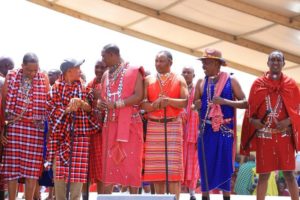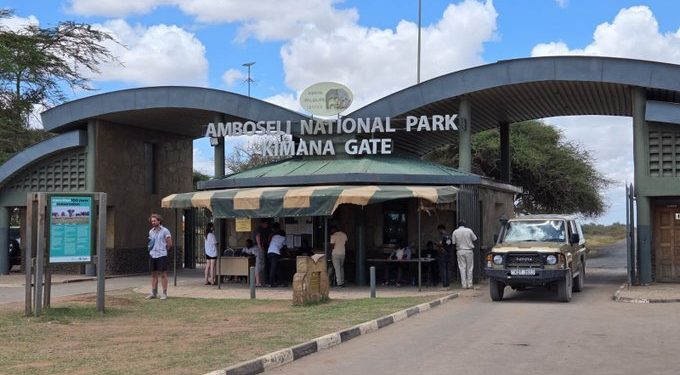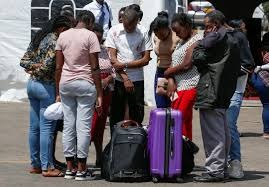In a landmark decision poised to reshape Kenya’s conservation and tourism landscape, President William Ruto has announced the handover of management responsibilities for Amboseli National Park to the local Maasai community. This move, which has sparked the trending hashtag #RutoHandsOverAmboseli on X (formerly Twitter), signals a shift toward community-led stewardship of one of Africa’s most iconic wildlife reserves. The announcement, made during a recent address in Kajiado County, aims to devolve control of the park’s surrounding dispersal areas—spanning about 5,000 square kilometers—to the Olgulului Group Ranch, a Maasai-owned entity. While the core park remains under the Kenya Wildlife Service (KWS), this partnership could redefine how Kenya balances biodiversity protection with economic empowerment.
Amboseli National Park, a UNESCO World Heritage Site since 2011 (UNESCO World Heritage Centre), is renowned for its breathtaking vistas of Mount Kilimanjaro and thriving populations of elephants, lions, and other wildlife. It attracts over 300,000 visitors annually, contributing significantly to Kenya’s tourism industry, which accounts for about 10% of the country’s GDP and employs millions (Kenya Tourism Board). However, historical grievances have long plagued the park: the Maasai, who coexist with wildlife on adjacent lands, have endured crop destruction, livestock losses, and minimal revenue from tourism fees collected by the central government.

President Ruto’s initiative, rooted in Kenya’s 2010 Constitution’s devolution principles, seeks to address these inequities. As detailed in an official statement from the Ministry of Wildlife and Tourism (Kenya News Agency), the handover will enable the Maasai to co-manage conservation efforts, collect a larger share of park entry fees (potentially up to 30%), and invest in community-based tourism projects. Ruto emphasized that this “community ownership” model will reduce human-wildlife conflicts and foster sustainable practices, drawing parallels to successful devolutions in the Maasai Mara National Reserve.
The implications for Kenya’s tourism sector are profound. By empowering locals, the handover could enhance authentic cultural experiences, such as guided tours led by Maasai warriors, appealing to the growing demand for eco-tourism and responsible travel. According to a 2023 report by the World Travel & Tourism Council (WTTC), community involvement in conservation sites like Amboseli could increase visitor satisfaction and spending by 20-30%, injecting vital revenue into rural economies (WTTC Economic Impact Report). This is crucial as Kenya rebounds from COVID-19’s tourism slump, with arrivals projected to reach 2 million by 2024 (Kenya National Bureau of Statistics).
Yet, the move isn’t without challenges. Environmentalists and opposition voices, including those from the WildlifeDirect NGO (WildlifeDirect), caution that without robust oversight, community management might lead to overdevelopment or poaching risks. Legal hurdles, similar to those in past Mara disputes, could also arise, as noted in coverage by The East African (The East African). Ruto’s administration has pledged safeguards, including joint monitoring with KWS and international partners like the African Wildlife Foundation (AWF Amboseli Project).
Ultimately, #RutoHandsOverAmboseli represents more than a policy shift—it’s a blueprint for inclusive tourism that could position Kenya as a global leader in community-driven conservation. If implemented effectively, it promises not just economic gains for the Maasai but a more resilient tourism sector, ensuring Amboseli’s wonders endure for generations. As debates rage online and in Parliament, stakeholders must collaborate to turn this vision into reality.


















